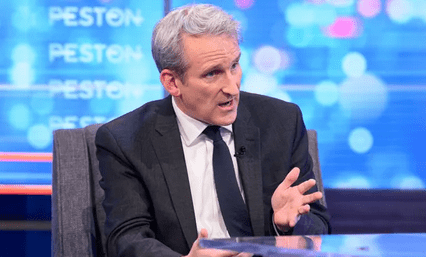
More people have self-radicalised online in pandemic
The coronavirus pandemic may have “exacerbated” the number of people self-radicalising online, the UK security minister, Damian Hinds, said in the wake of the Liverpool bombing.
Hinds said the security services had disrupted more than 30 late-stage plots in the last few years.
Counter-terrorism police said they “strongly believed” the man killed in the bombing to be Emad al-Swealmeen, 32, who had travelled in a taxi to Liverpool Women’s hospital from an address he had recently rented a few miles away.
The Guardian understands al-Swealmeen had previously changed his name to Enzo Almeni and is reported to have converted to Christianity from Islam in the last few years.
Police said they could not be sure if the hospital was the suspected suicide bomber’s intended target, or if the device he had constructed had ignited prematurely. The hospital is close to Liverpool cathedral, where a Remembrance Sunday event was taking place.
Hinds said there was a shift towards attacks becoming more self-directed. “We use the term ‘lone wolf’ a lot, sometimes it’s a bit … it can be a little misleading because it gives a certain picture of an individual,” he told Sky News on Tuesday.
“But it certainly is true that we’ve seen a move over time, a shift from these what we call directed attacks, part of a bigger organisation where people are following instructions, sometimes quite complex in their organisation, and move from that to more self-directed, some self-radicalised individuals or small groups, rarely totally, totally alone.”
Asked if it was right to lower the terror threat in February, Hinds said the decisions were taken independently. “But whether we talk about ‘substantial’ or ‘severe’, the threat level has been high for a long time now. As long as that is the case, there is of course the risk that a terrible event and atrocities such as this can happen,” he said.
“It’s necessary to be alert throughout. I think it’s right that the level has now been raised and these things are kept under constant review.”
The shadow home secretary, Nick Thomas-Symonds, said the government needed to launch a judge-led inquiry into “lone wolf” individuals to understand how better to prevent attacks.
“I previously called, after the terrible stabbings that occurred in Forbury Gardens in Reading [Khairi Saadallah was found guilty of three murders and given a whole life sentence] that we needed specifically to be looking at the issue of lone actors,” he said.
“We don’t know the specific conclusions in the case in Liverpool yet as to whether someone was acting alone or in concert, and I’m not for a moment drawing that conclusion too prematurely.
“But I do think we need to be looking at the attacks that have taken place. Do we need something like a judge-led inquiry to look at the issue of lone attackers? And we need now, as I say, to get this investigation concluded as swiftly as possible, and then to look at the wider conclusions that perhaps we need to draw.”
The man killed in Liverpool was not previously known to MI5, which keeps a list of 3,000 current suspects and just over 20,000 previous suspects, or to specialist counter-terrorism police officers.
The dead man, who police believe built the improvised explosive device, is thought not to be British-born and to have had Syrian and Iraqi heritage. His status in the UK is under investigation, as is his time spent at a privately run asylum seeker hostel in Liverpool.
The threat level had been at the lower level since 8 February after a “significant reduction” in the momentum of attacks in Europe, including those seen in Austria and France between September and November 2020.
Announcing on Monday that the attack level would be raised, the home secretary, Priti Patel, said this was because there had been two attacks – Liverpool and the murder of MP David Amess – in the space of a month.
Source: The Guardian





